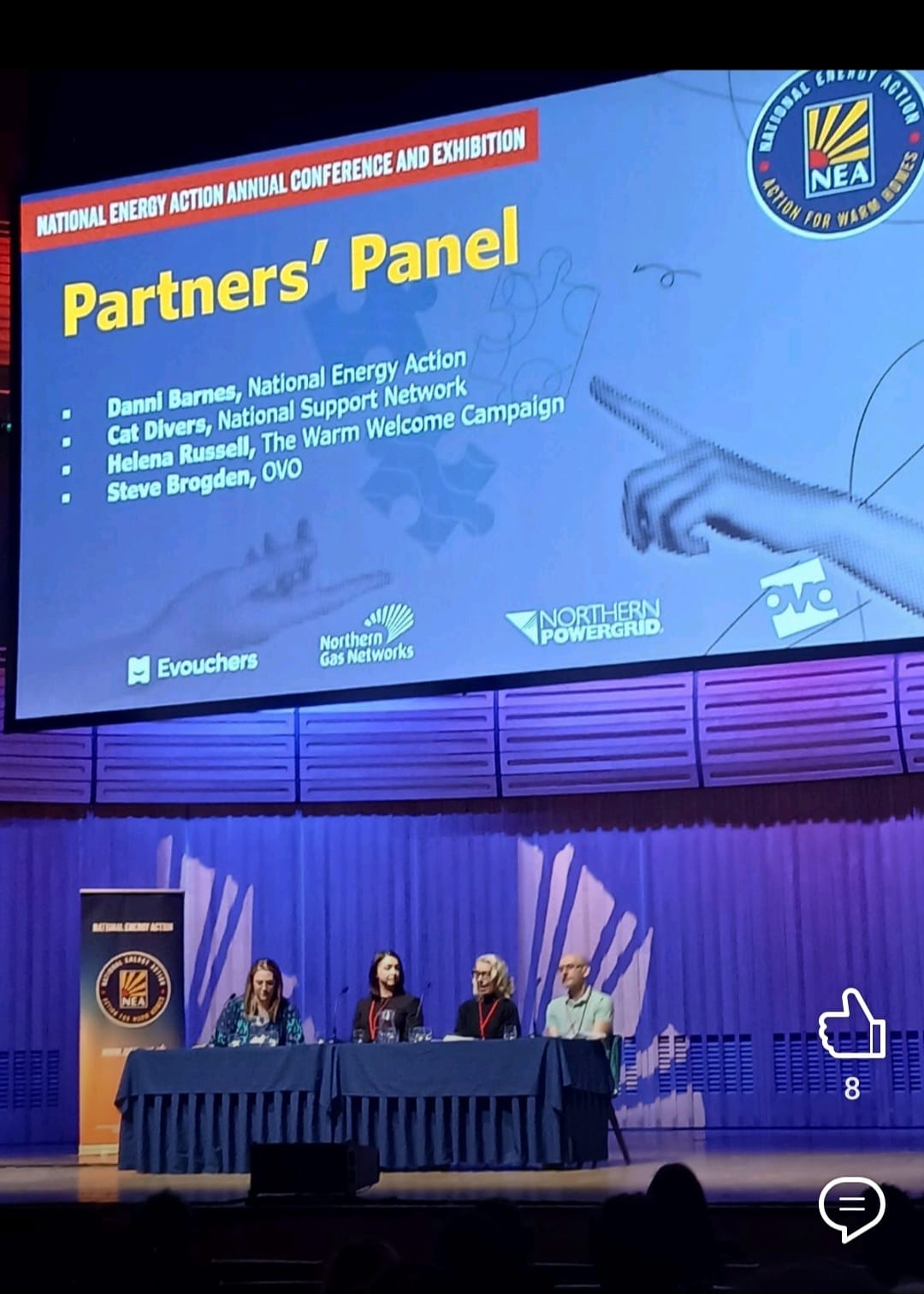.svg)
Across the UK, through the depths of winter and the Cost of Living Crisis, a movement has been born. It’s a quintessentially British kind of movement, powered by an army of volunteers, endless cups of tea and ordinary conversations. As millions of people in the sixth richest country in the world have found themselves unable to heat their own homes, thousands upon thousands of designated ‘Warm Welcome Spaces’ have emerged. And together they are changing the social landscape of our country.
The Warm Welcome campaign began last summer when senior faith leaders met with former prime minister Gordon Brown to discuss the growing Cost of Living Crisis and the increasingly dire outlook for low income households. In what was almost a throwaway comment, Gordon Brown mentioned that he’d heard of plans for ‘train station waiting room-style heated spaces’ for those unable to pay their energy bills. The room went quiet as the impact of that mental image sunk in. Every person left the meeting determined that something better had to be created.
Through conversations in the following days and weeks the concept of a ‘Warm Welcome Space’ emerged – somewhere that was free to enter, safe, warm and welcoming. Instead of being prescriptive beyond these basic elements, we decided to trust that local groups knew best what people in their community might need. We build a website, held an online launch event, and then watched in awe as first hundreds and then thousands of groups of every shape and size signed up and got involved – churches, mosques, gurdwaras, libraries, schools, community cafes and many many more.
For a significant number of these organisations, Warm Welcome has provided a brand and a banner under which to grow and expand their existing activities – extending hours, running new sessions, reaching new parts of the community. For others it has been a catalyst to try something new – film nights, homework clubs, community meals. The collective impact of these Spaces has been enormous. One woman told the BBC that before she found her local Warm Welcome venue, the only way she could keep warm at home was by staying in bed all day. Spaces are described by many who use them as a ‘lifeline’. But as well as providing a place of refuge for the cold and hungry, Warm Welcome Spaces have been hubs of community, helping people make connections and build friendships. In doing so they are creating the longer-term social support networks that can sustain people all-year round. They are also often providing the space for intergenerational contact and connection that is increasingly hard to find elsewhere.
For many of the Warm Welcome Spaces, the experience has been transformational for their own organisation too. Libraries have reinvented themselves as community hubs, attracting families and young people like never before and demonstrating beyond doubt their immense value to the social fabric of their place. Many churches now have more people attending their Warm Welcome provision than coming along to their Sunday services, inspiring them to reimagine who they exist to serve and how.
The long-term prospects for Warm Welcome now are fascinating. As well as providing a unifying banner for Warm Spaces, the campaign has raised almost £300k to give out in £1000 microgrants targeted at Spaces in areas of highest deprivation. In doing this, it has created a unique vehicle for funders who want to invest in hyper-local leadership and resilience but at a significant scale. The Government’s promise to develop a strategy for community spaces and relationships as part of its Levelling Up programme surely can’t fail to focus on what could be done with this now 7000-strong network which is supporting hundreds of thousands of people each week. And imagine what a programme of work on energy efficiency for Warm Welcome buildings could do, creating huge environmental benefits on our national race to Net Zero whilst boosting the financial resilience of crucial local assets.
There are also the first signs of Warm Welcome providing a catalyst for systemic change. In Birmingham, Warm Welcome Spaces found a number of people were struggling with issues of damp and mould in their homes. So, they organised themselves to work with the Council, ensuring that all Spaces have access to a senior Council Director who can fast-track cases for a response. This kind of organising for change is creating a blueprint for other Spaces to work together to listen to and act on the issues facing local people, ensuring that Warm Welcome can go beyond just a short-term practical response to our deep systemic challenges.
The campaign will change gears at the end of this winter, signposting those who want to carry on running activities to other sources of support. But with the Cost of Living Crisis not showing any signs of abating, preparations will begin immediately for a Warm Welcome campaign that is bigger and better next Winter, nurturing a movement which feels like it is just getting started.
The outlook for Britain may be bleak in many ways, but Warm Welcome shows that we still have plenty to be hopeful about. When faced with crisis and despair, the community response to the Cost of Living Crisis has been nothing short of heroic. Now it’s up to the rest of society to follow where local people are leading.
Want more updates about the Warm Welcome campaign?
Stay up to date with our latest news:




.png)